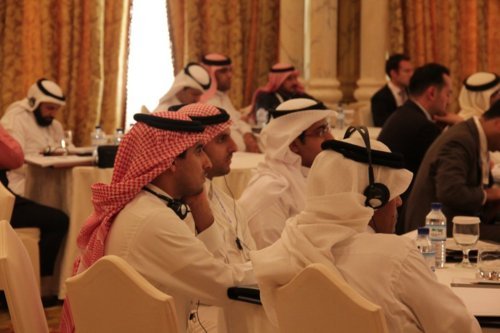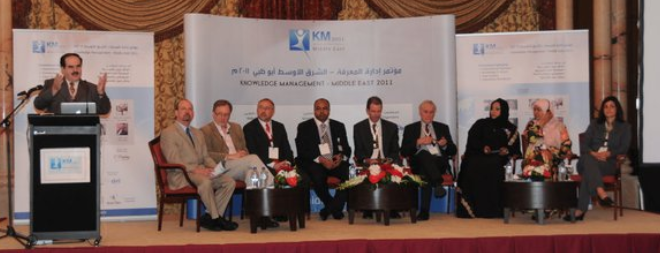I’ve been in Iran and Dubai. And as often happens when working collaboratively great ideas emerge.
Valuing Knowledge
Firstly to Tehran and an issue which so many organisations struggle with: how to describe the true value of Knowledge to an organisation? We are good at valuing fixed assets but poor at applying similar criteria to intangible Knowledge Assets or Intellectual Capital.

This story, the keyboard and the patent, might change perceptions:
A few weeks back a new keyboard costing $20 was delivered to the Director. After a couple of days a lady from premises appeared to place a sticker on it to denote it was an asset of the company and henceforth will appear on the company’s register of assets. The asset is managed!
Coincidentally the same day as the premises lady appears the Director gets notification of the award of a US patent which costs in excess of $20,000 to acquire.

US Patent Certificate
The patent will need to be protected and if necessary enforced yet in most organisations that patent is not shown as an asset of the company on its balance sheet even though its value (in terms of future revenues) is very significant.
By way of a further example, if I lose my Macbook I can replace the hardware (at a cost) but the value of the intangible ‘Knowledge’ stored on it (documents, emails, presentations, videos, contacts) can’t be replaced instantly unless I’ve taken steps to back it up on an external hard drive or in the cloud in which case I have managed my Knowledge!
Orchestrated Serendipity -creating a physical Knowledge Sharing environment
On my way back from Tehran I stopped in Dubai to catch up with a number of old friends which is why on Wednesday I spent a couple of hours at the Knowledge and Human Development Authority (KHDA) located in Dubai Academic City who:
… is responsible for the growth and quality of private education in Dubai. We support schools, universities, parents, students, educators, investors and government partners to create a high quality education sector focused on happiness and wellbeing.
Having arrived at my hotel in the early hours I was not at my best when some 5 hours later the cab dropped me outside KHDA’s offices. I was early for my meeting with Luke Naismith Director of Research so thought I might see if I could find a coffee shop.

KHDA’s Reception
I was warmly greeted by two very affable Emirati who ushered me to a seat whereupon coffee was served. Over the next 15 minutes my whole demeanour changed.

Luke demonstrating the presentation ‘lectern’ in the boardroom.
‘Abdullah’ one of the Excellence Team responsible for ensuring adherence to the Dubai Government’s Excellence Program showed me around as Luke was in a meeting.
I saw senior people conducting meetings in very transparent meeting areas; the Head’s PA was arranging appointments from the lobby. There was a relaxed yet professional atmosphere despite the presence of budgerigars flying around.
What caught my eye (apart from the boardroom) was the merging of the old and the new.

The Clipping Service
Each day KHDA compiles a clipping service of relevant news that it sends to all employees.
In addition it houses them in its downstairs work area so that all visitors and employees who choose to work in the communal area can keep up to speed.

Boardroom
Luke emerged and showed me around. I noted the layout promoted an environment of transparency so that people share and can find others.
The boardroom was an eye opener. Everyone can see what’s going on and the strategy appears as a set of diagrams as the picture shows.
PowerPoint presentations do take place and Video Conferencing but the emphasis is on brevity, agile working and rapid empowered decision making.
Paper is absent from most areas, people are treated like adults and act like them. And staff turnover is low though if people leave the collaborative team working nature of KHDA means their loss is covered.

Upper floor: Collaboration and Training Area
Interestingly Enterprise Social Networking Tools such as Yammer have not yet had the impact I thought they might even though the whole physical environment is geared up for collaboration.
Immunity (Risk) Management
The most visible illustration of KHDA’s positive approach shows in how the board manages risk (often the driver for KM initiatives). One of the team coined the term Immunity Management as a way of anticipating future ‘bumps in the road’. So they have an Immunity Register not a Risk Register that is reviewed regularly by the board. The simple act of taking a positive view has resulted in very innovative ideas.
And finally
In Dubai the imposition of quality standards permeates organisational thinking and sets a blueprint for organisations to follow. At its best (Emirates Airline) service is exceptional; at its worst strict adherence to standards can stifle creativity. KHDA is an illustration of how the pursuit of customer service excellence can change the way an organisation delivers it.
Where the above examples meet is in the need for identification and maintenance of Knowledge Assets or Intellectual Capital. More on that in future postings.


